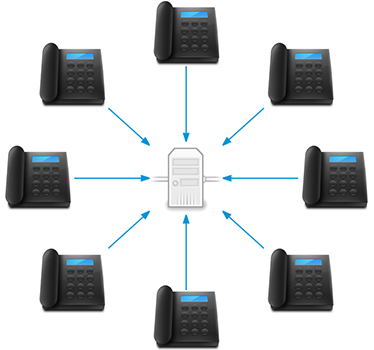
A SIP server is the main component of our IP 3CX, and mainly deals with the management of all SIP calls in the network. A SIP server is also referred to as a SIP proxy or a registrar. Although the SIP server can be considered the most important part of a SIP-based IP-3CX phone system, it only handles or manages sessions; more specifically, a SIP server can:
- Set up a session between two (or more) endpoints (an audio conference would have more than two endpoints)
- Negotiate the media parameters and specifications for the session for each endpoint using the SDP protocol
- Adjust the media parameters and specifications of a session during the session (putting a call on hold, for example)
- Substituting one endpoint with a new endpoint (call transfer)
- Terminate a session
The SIP server does not actually transmit or receive any media – this is done by the media server in using the RTP protocol. Within the context of an IP-3CX environment, it is almost always true that the SIP server and its Media server companion reside on the same machine. Do keep in mind, however, that very-high-volume SIP servers (such as a large VoIP provider, for example), may separate their media server to a different machine to better handle the workload, and could also possibly distribute the load to multiple media servers.


